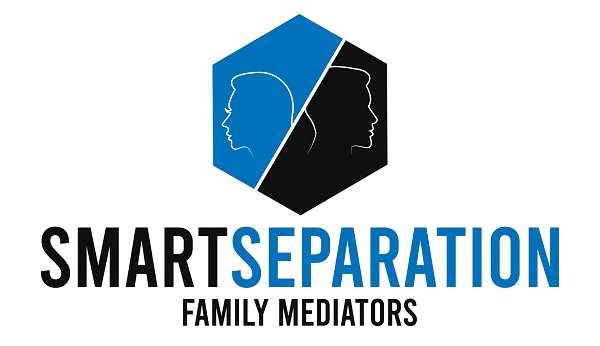Mediation vs. Arbitration in Family Law | Toronto Dispute Resolution Options
June 25, 2025
Understanding the Difference between Mediation and Arbitration
When it comes to resolving family law disputes in Toronto, many couples are seeking ways to avoid lengthy and expensive court battles. Two popular alternatives are mediation and arbitration. While both serve as dispute resolution methods outside the courtroom, they function in very different ways. Choosing the right approach depends on your unique circumstances, the level of conflict involved, and the type of outcome you’re seeking. This article explores the key differences and how a Toronto family mediator plays a vital role in guiding families through peaceful resolutions.
Mediation: A Voluntary and Collaborative Process
Mediation is a voluntary process where both parties work with a neutral third party—known as a family mediator—to reach a mutually acceptable agreement. In Toronto, family mediation is governed by Ontario’s Family Law Rules and is widely supported by the family court system as a preferred first step before litigation.
Key Features of Mediation:
- Non-binding unless signed: Discussions during mediation are confidential and non-binding unless both parties agree and sign a separation agreement or parenting plan.
- Collaborative: The mediator facilitates respectful dialogue, helping parties identify issues and explore solutions together.
- Child-focused: Especially in parenting disputes, Toronto family mediators ensure that the best interests of the children are prioritized.
- Cost-effective: Mediation is generally less expensive than court or arbitration, making it a more accessible option for many Toronto families.
A Toronto family mediator does not take sides or make decisions. Their role is to guide conversations, manage conflict, and help both individuals focus on solutions rather than blame.
Arbitration: A Private, Binding Legal Decision
In contrast, arbitration is a more formal process where an impartial third party—called a family law arbitrator—acts like a private judge. Under Ontario’s Arbitration Act and Family Law Act, arbitration decisions are binding and enforceable in court, provided proper procedures are followed.
Key Features of Arbitration:
- Binding outcome: The arbitrator has the authority to make legally binding decisions after hearing arguments and reviewing evidence.
- More formal than mediation: Arbitration hearings can resemble court proceedings, including testimony, document submissions, and cross-examination.
- Efficient resolution: Though more structured than mediation, arbitration is often faster than going to family court.
- Used for complex or high-conflict cases: Arbitration may be appropriate when parties cannot agree or require a definitive ruling.
Unlike a Toronto family mediator, a family arbitrator evaluates facts, interprets the law, and imposes a decision that both parties must follow. Some arbitration agreements even allow for appeals in limited circumstances, but in many cases, the decision is final.
Role of a Toronto Family Mediator vs. a Family Law Arbitrator
Understanding the different roles these professionals play is crucial when deciding which route to take.
| Role | Toronto Family Mediator | Family Law Arbitrator |
| Decision-making | Does not make decisions; facilitates negotiation | Makes legally binding decisions |
| Process type | Informal, cooperative | Formal, adversarial |
| Confidentiality | Fully confidential | Private, but records may be submitted to court |
| Outcome | Voluntary agreement, not binding unless signed | Binding legal decision |
| Best for | Co-parenting plans, spousal support, communication | Property disputes, high-conflict legal issues |
How Mediation Works in Toronto Family Law Cases
Understanding the Family Mediation Process in Toronto
Family mediation is a structured yet flexible process designed to help separating or divorcing couples resolve disputes without going to court. In Toronto family law cases, mediation is often the first recommended step before litigation. It’s a process built on voluntary participation, respectful communication, and practical problem-solving—facilitated by a neutral third party known as a Toronto family mediator.
Voluntary Participation and Focus on Cooperation
One of the foundational principles of family mediation in Toronto is that it’s voluntary. Both parties must agree to attend and engage in good faith. This cooperative spirit distinguishes mediation from adversarial court proceedings.
Mediation provides a safe, confidential space where individuals can express their concerns, explore options, and work towards solutions that are mutually acceptable. The goal isn’t to “win,” but to find common ground and create agreements that reflect the unique needs of both parties—especially when children are involved.
The Mediator’s Role: Guiding, Not Deciding
A Toronto family mediator is not a judge and does not impose decisions. Instead, their role is to:
- Facilitate constructive dialogue
- Ensure both voices are heard
- Clarify misunderstandings
- Keep discussions focused and respectful
- Suggest options, but not legal advice
Accredited mediators in Ontario, often certified through organizations like the Ontario Association for Family Mediation (OAFM), follow a neutral and impartial approach. They are skilled in conflict resolution and trained to manage emotionally charged discussions with sensitivity and professionalism.
The mediator helps parties stay focused on their goals while providing a roadmap for navigating challenging topics. This support often results in quicker, less stressful resolutions compared to court battles.
Common Issues Resolved Through Family Mediation
Many legal and emotional challenges that arise during separation can be addressed through mediation. In Toronto, common issues that family mediators help resolve include:
- Parenting Time and Decision-Making Responsibility
Creating detailed parenting plans, including schedules, holidays, and decision-making authority regarding children’s health, education, and activities. - Child and Spousal Support
Determining the amount and duration of financial support in accordance with Ontario’s Child Support Guidelines and the Spousal Support Advisory Guidelines. - Division of Property and Debts
Working out how to divide the matrimonial home, personal property, pensions, and other assets—alongside any shared debts or liabilities. - Communication and Future Co-Parenting Arrangements
Establishing boundaries, communication methods, and long-term strategies to reduce future conflict.
Mediation empowers couples to customize solutions rather than rely on rigid court orders. Once agreements are reached, they are typically documented in a Separation Agreement, which can be reviewed by lawyers and filed with the Ontario court if needed for enforcement.
How Arbitration Works in Ontario Family Disputes
Understanding Arbitration in Ontario Family Disputes
When separating couples in Ontario are unable to resolve their disputes through negotiation or mediation, they may choose arbitration as a private alternative to court. Arbitration is particularly useful when both parties want a binding decision but prefer to avoid the delays, costs, and publicity of litigation. In the context of Toronto family law, arbitration offers a legally recognized path to resolve complex family issues efficiently and confidentially.
The Arbitrator’s Authority and Decision-Making Power
Unlike a Toronto family mediator, who facilitates discussions without imposing outcomes, an arbitrator has the legal authority to make decisions that are binding on both parties. Arbitration decisions, called awards, carry the same legal weight as court judgments, provided the process complies with Ontario’s Arbitration Act, 1991 and Family Law Act.
Before arbitration begins, both parties must sign a written arbitration agreement outlining:
- The issues to be resolved
- The rules governing the process
- Whether appeals are allowed
- The arbitrator’s role and powers
Importantly, all parties must receive independent legal advice before signing the agreement, and full financial disclosure is required—just as in court.
A Formal Process with Evidence and Testimony
Although arbitration takes place outside the courtroom, the process is often formal and structured, particularly for financial or parenting disputes. Here’s what to expect:
- Presentation of Evidence: Both parties present their documents, statements, and financial records.
- Witness Testimony: Experts or family members may be called to testify if needed.
- Cross-Examination: Each party may question the other’s witnesses, just like in court.
- Legal Arguments: Parties or their lawyers provide submissions based on Ontario family law.
- Final Award: After reviewing all evidence and arguments, the arbitrator delivers a binding decision.
Some arbitrators allow for a more relaxed setting for less complex matters, but overall, arbitration requires thorough preparation and legal representation to ensure fairness and enforceability.
Suitable for Complex or High-Conflict Cases
Arbitration is often chosen for high-conflict or financially complex family disputes, where mediation has failed or isn’t appropriate. Examples include:
- Disputes over property division, pensions, or business valuations
- Disagreements about spousal support or entitlement
- Parenting disputes involving relocation or decision-making authority
- Cases where a quick resolution is needed without waiting months for a court date
Couples who want to maintain privacy, control over who decides their case, and a timeline that suits their needs may find arbitration ideal.
Pros and Cons of Mediation in Toronto
Why Many Couples Start with Mediation
When facing the emotional and legal challenges of separation or divorce, many Toronto couples begin with family mediation as a way to resolve disputes peacefully. Mediation is a structured, voluntary process led by a neutral Toronto family mediator who helps both parties reach mutual agreements on parenting, support, and property matters—without the adversarial nature of court. For couples seeking a cooperative and cost-effective alternative, mediation is often the first and best step.
Pros of Mediation in Toronto
Mediation offers several compelling advantages, especially when compared to traditional litigation:
✅ Cost-Effective
Litigating a family law dispute in court can be expensive, with legal fees quickly adding up. Mediation tends to be significantly more affordable, as it involves fewer hours, no court appearances, and often a flat or predictable fee structure.
✅ Confidential
Unlike court proceedings, which are public, mediation sessions are private and confidential. This protects your personal matters from public exposure and encourages open, honest communication between parties.
✅ Faster Resolution
Court cases can take months—or even years—to resolve. Mediation usually allows couples to settle matters in weeks rather than months, making it ideal for those who want to move forward with their lives without unnecessary delay.
✅ Child-Focused
Toronto family mediators are trained to prioritize the best interests of children. Parenting plans, custody arrangements, and communication strategies are crafted with a focus on stability and cooperation, helping children adjust with less emotional strain.
✅ Preserves Relationships
Mediation promotes respectful dialogue and cooperation, which can be essential for co-parenting or maintaining a civil relationship post-separation.
Cons of Mediation in Toronto
Despite its many benefits, mediation may not be the right fit for every situation. Some limitations include:
❌ Not Legally Binding Unless Formalized
Agreements reached in mediation are not automatically enforceable. To be legally binding, the outcome must be documented in a formal agreement (such as a Separation Agreement) and ideally reviewed by lawyers. Without this step, enforcement through court becomes difficult.
❌ May Fail if Parties Can’t Cooperate
Mediation requires a willingness to negotiate and compromise. If one party is uncooperative, dishonest, or attempting to control the process, mediation may break down. In cases involving abuse, power imbalances, or severe mistrust, other options—such as arbitration or litigation—may be more appropriate.
When a Toronto Family Mediator Can Help Avoid Court Entirely
For many couples in Toronto, working with a skilled family mediator can mean avoiding court altogether. When both parties come prepared with financial disclosure, realistic expectations, and a willingness to collaborate, mediation can resolve:
- Parenting time and custody arrangements
- Child and spousal support
- Division of property and debts
- Communication strategies and future planning
By guiding discussions and helping both sides focus on solutions, a Toronto family mediator often helps couples reach comprehensive agreements that can be finalized without ever setting foot in a courtroom.
Pros and Cons of Arbitration in Family Law
When Arbitration May Be the Better Route
While many separating couples in Toronto begin with mediation to resolve family law issues, not all disputes can be settled collaboratively. When negotiation fails or when parties want a definitive, legally binding resolution without the delays of court, arbitration can be an effective alternative. In Ontario, family law arbitration provides a private, structured process led by a neutral third party—offering many of the benefits of court with greater flexibility. Understanding the pros and cons of arbitration can help you decide whether it’s the right approach for your situation.
Pros of Arbitration in Family Law
Arbitration offers several advantages for couples who need a binding decision but want to avoid the formal court system.
✅ Binding Outcome
Unlike mediation, which results in non-binding proposals unless formalized, arbitration produces a legally binding decision—known as an award. This can provide certainty and closure in high-conflict or complex disputes.
✅ Privacy
Court proceedings are public, but arbitration is entirely private. Sensitive financial details, parenting concerns, and personal conflicts remain confidential, which is especially appealing to high-profile or privacy-conscious individuals.
✅ Quicker Than Court
In Toronto, family court delays can stretch proceedings for months or even years. Arbitration typically allows couples to set their own timelines, often resulting in faster resolutions—without waiting on backlogged court calendars.
Cons of Arbitration in Family Law
Despite its strengths, arbitration also has drawbacks that may make it unsuitable for certain families.
❌ Higher Cost Than Mediation
Arbitration is usually more expensive than mediation due to its formality and complexity. Costs may include the arbitrator’s hourly or daily rate, fees for legal counsel, and expenses related to evidence preparation or expert testimony.
❌ Less Collaborative
Unlike mediation, which encourages cooperation and mutual understanding, arbitration is an adversarial process. Each party presents their case, and the arbitrator renders a decision—similar to a judge. This structure can intensify conflict, particularly in already tense relationships.
❌ Limited Right of Appeal
Arbitration decisions are difficult to appeal. Under Ontario’s Arbitration Act, 1991, parties can only appeal in limited situations—such as legal errors or breaches of natural justice—and only if the arbitration agreement permits it. This lack of recourse can be risky if the outcome is unfavourable.
Importance of Choosing an Experienced Arbitrator in Toronto
If you decide to pursue arbitration, the outcome will heavily depend on the skills, experience, and neutrality of the arbitrator. It’s essential to choose someone who:
- Specializes in Ontario family law
- Has training in dispute resolution and decision-writing
- Understands the complexities of parenting plans, spousal support, and property division
- Is accredited and recognized by professional bodies such as the ADR Institute of Ontario
In many cases, family lawyers or mediators also serve as arbitrators. Some offer med-arb services—a hybrid process where they attempt mediation first and transition to arbitration if necessary, provided all parties agree.
Which Option Is Right for You? Mediation or Arbitration?
Choosing Based on Your Situation and Goals
When going through a separation or divorce in Toronto, choosing the right dispute resolution method can significantly impact the outcome—for both you and your family. Mediation and arbitration are two common alternatives to court, but each serves a different purpose. The decision to mediate or arbitrate depends on your unique circumstances, the level of cooperation between parties, and the complexity of the legal issues involved. Understanding how each option works can help you make an informed decision aligned with your needs and goals.
Mediation for Cooperative or Moderately Contested Issues
Mediation is ideal when both parties are willing to communicate and compromise. Whether you’re working through parenting schedules, support arrangements, or how to divide property, mediation allows for flexibility and creative problem-solving.
A Toronto family mediator helps facilitate dialogue, clarify misunderstandings, and keep negotiations on track. Mediation is especially useful when:
- You and your former partner share a desire to resolve issues amicably
- You want to prioritize your children’s emotional wellbeing
- You prefer to make decisions yourselves rather than have a third party impose them
- You are looking for a cost-effective and quicker solution
While mediation works best when both parties are reasonably cooperative, it can also succeed in moderately contested situations with the help of a skilled mediator who understands how to manage conflict.
Arbitration for Impasses or Legally Complex Disputes
When discussions stall or issues are legally intricate, arbitration may be the more effective route. This process is more formal than mediation and results in a binding decision made by a neutral arbitrator—similar to a judge.
Arbitration may be appropriate if:
- Negotiations have failed and you need a firm resolution
- The dispute involves complex financial matters (e.g., business assets, pensions)
- One or both parties are unwilling to compromise
- You want to avoid the delays and exposure of court while still reaching a binding outcome
While it offers privacy and finality, arbitration is typically more costly and less collaborative than mediation. It’s better suited for high-conflict or high-stakes scenarios where mutual agreement is unlikely.
How a Toronto Family Mediator Can Guide You Toward the Right Process
You don’t have to decide alone. A Toronto family mediator—especially one trained in both mediation and arbitration—can assess your situation and help you explore the best option. In some cases, couples begin with mediation and transition to arbitration only if necessary (a process known as med-arb).
A knowledgeable mediator can:
- Explain the benefits and limitations of each process
- Identify whether power imbalances, safety concerns, or legal complexity suggest arbitration
- Refer you to legal professionals if arbitration is required
- Help draft agreements that can be formalized and enforced
Choosing the right path can reduce stress, save time, and protect your family’s future. The right guidance makes all the difference.
As an experienced family and divorce mediator in Toronto, I often write blogs to provide insights, tips, and resources on family mediation and divorce in Ontario. Follow my blog to stay informed and empowered during challenging times.



